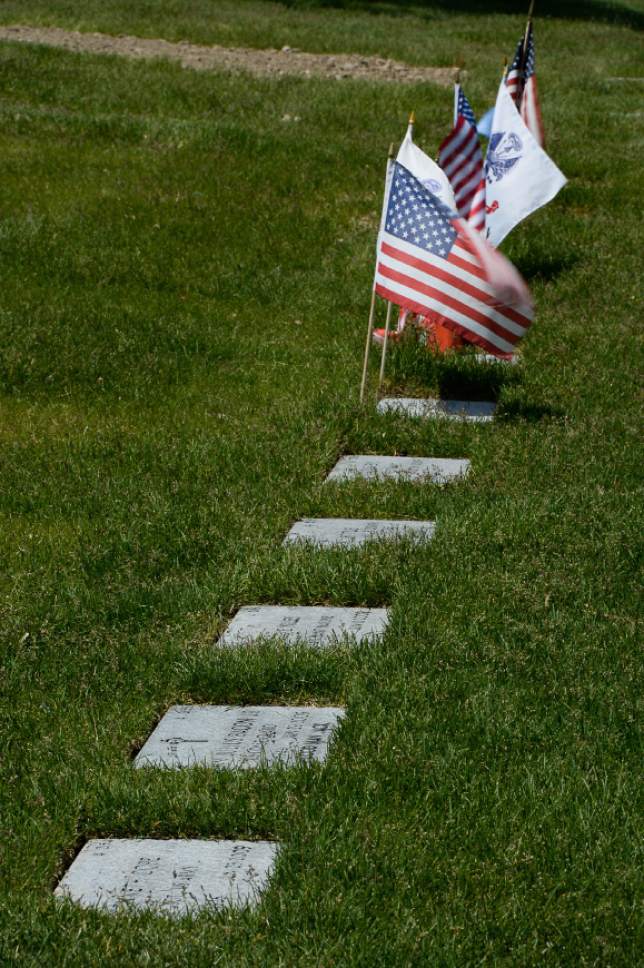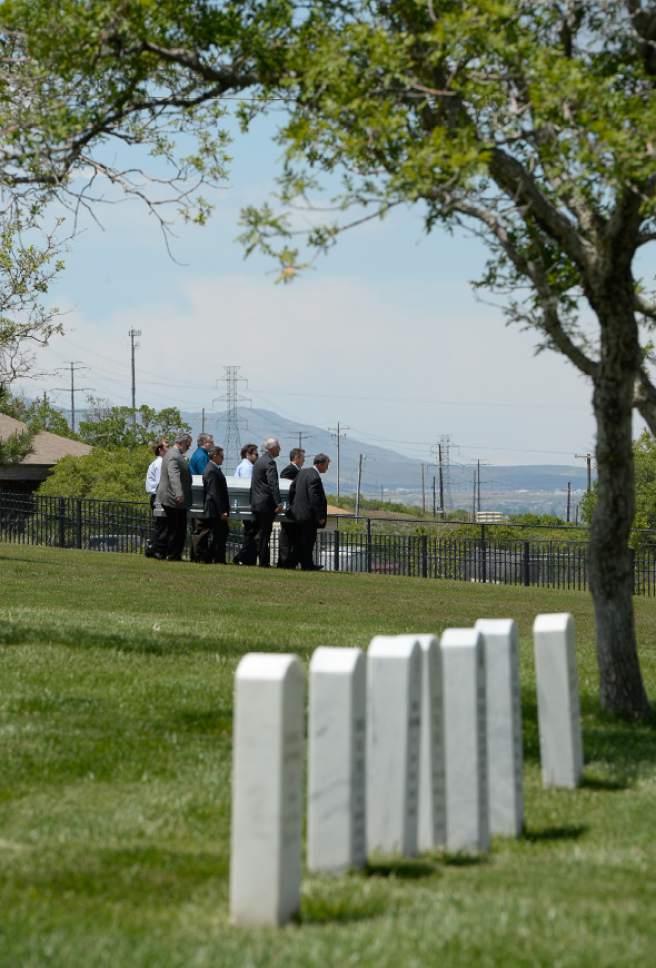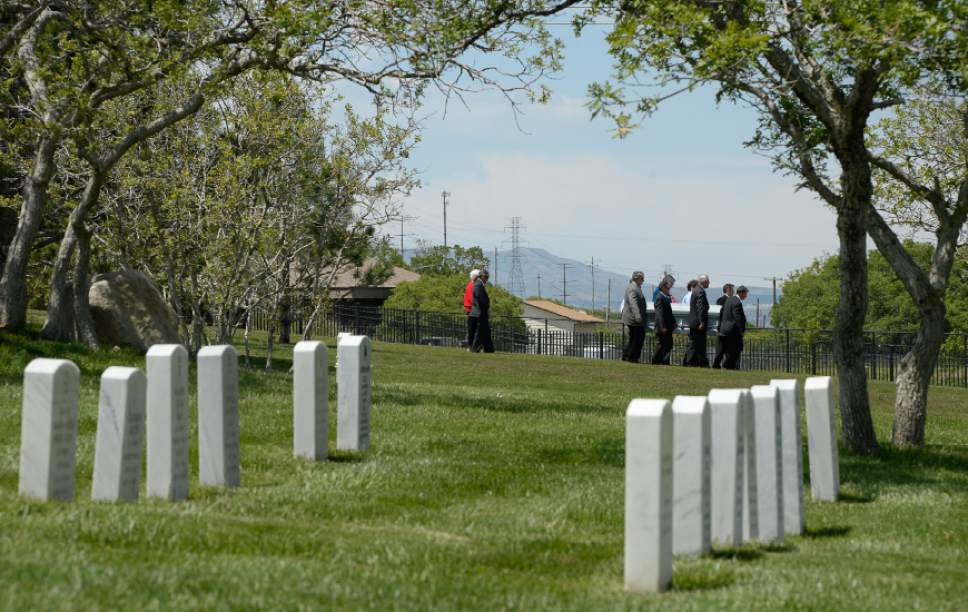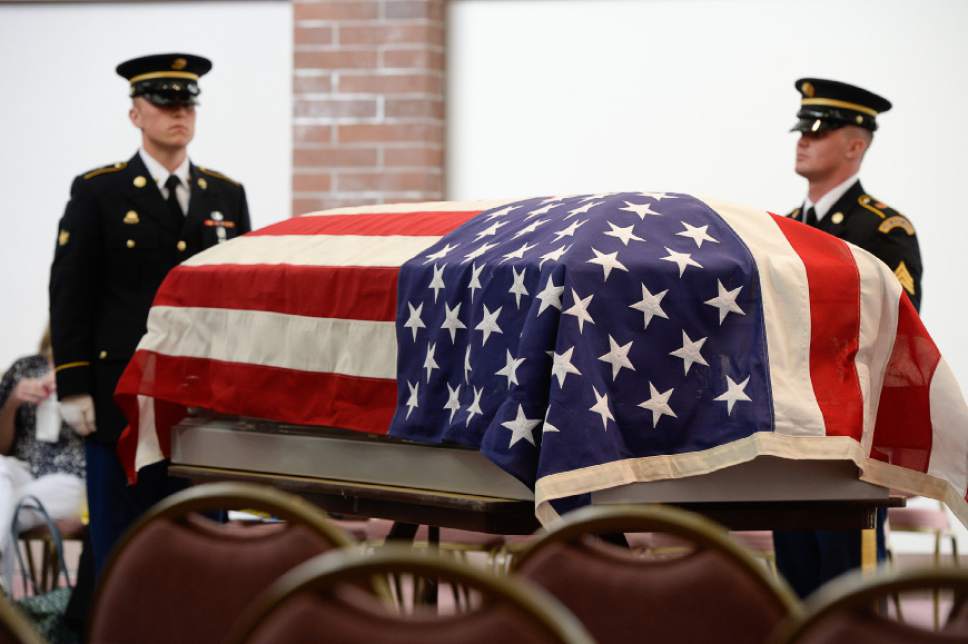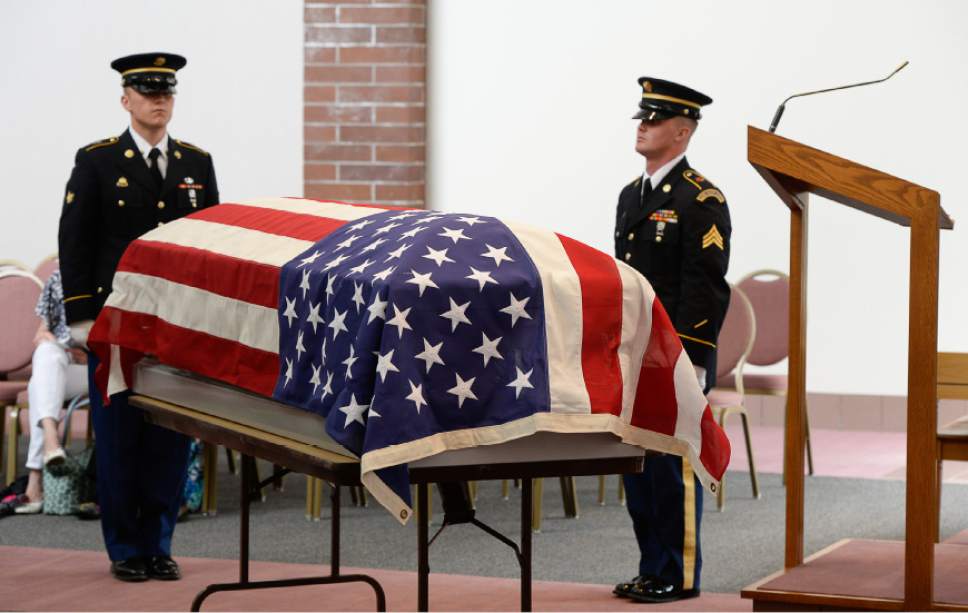This is an archived article that was published on sltrib.com in 2016, and information in the article may be outdated. It is provided only for personal research purposes and may not be reprinted.
Utah is one of the few states without a federally-run veterans cemetery. After years of trying to find a spot to put such a burial ground, 2017 could be the year.
The National Cemetery Administration has narrowed its search to two sites in Cedar City, said Glenn Madderom, chief of cemetery development and improvement for the administration. It is part of the U.S. Department of Veterans Affairs.
Madderom declined to specify the location of the two Cedar City sites under consideration, but said the Cemetery Administration wants 5 or 6 acres with easy access to Interstate 15 and in a setting suitable for a cemetery.
"For example, if you have heavy industrial development next to it, it's not so much a peaceful, tranquil setting," Madderom said.
Madderom said his agency is performing its "due diligence" to find the better site and expects to have that site purchased in eight to 12 months.
National veterans cemeteries like the one that opened in 2015 in Tallahassee, Fla., are as big as 250 acres, but the Utah site being pursued by the Cemetery Administration is part of a program to provide burial plots to rural veterans.
The Cemetery Administration identified Cedar City as a central location for southwest Utah's rural veterans. Madderon said there are about 17,000 veterans living within a 75-mile radius of Cedar City.
Raymond Cartwright, the senior vice commander of Veterans of Foreign Wars Post 10846 in Enoch, said Cedar City is a sort of hub for local veterans. The town has its own VFW post, as well as chapters of the American Legion and the Marine Corps League. Cedar City's municipal cemetery has one of the state's largest Korean War memorials.
Cartwright, a U.S. Navy and Vietnam War veteran, said veterans years ago tried to start their own cemetery at a site between Cedar City and Kanarraville. The project withered in the planning phase because the veterans couldn't figure out a way to fund what would have been ongoing maintenance and expenses.
"There's a lot of veterans here and stuff," Cartwright said, "and I'm sure that they could use a cemetery here."
The Cemetery Administration began trying to find a site in southwest Utah in 2014. Originally, the administration wanted a site within or adjacent to an existing cemetery.
When that couldn't be found, the Cemetery Administration looked for land to purchase elsewhere. Madderom on Tuesday said a number of potential locations fizzled when owners were either unwilling to sell or problems at the sites were discovered.
"It's been a harder process or a harder challenge to find suitable land for a cemetery in Cedar City,"Madderom said.
The only veterans cemetery in Utah is operated by the state. It is located in Bluffdale. About 450 veterans are buried there every year, and the cemetery will be out of burial plots in five or six years.
Gary Harter, the director of the Utah Department of Veteran and Military Affairs, said there is no room to expand the Bluffdale cemetery and his department is looking for new land to purchase in or near Bluffdale.
Harter said his department also has spoken with the VA about creating a national cemetery in the Ogden area to accept the remains of veterans there. The VA, Harter said, seems inclined to wait until the state cemetery gets closer to burial capacity.
All three facilities — the Cedar City cemetery, a new state cemetery and a national cemetery near Ogden — may all be necessary to accommodate veteran burials, Harter said.
"I want to know what the realm of possibilities are to serve the veterans who have served our country," he said.
Twitter: @natecarlisle —
Who can be buried in a veterans cemetery?
The Utah Veterans Cemetery and Memorial Park in Bluffdale, which is operated by the state, will accept the remains of anyone who was honorably discharged from the armed forces or was killed during duty. Those veterans' spouses and dependent children also are eligible to be interred there.
At national cemeteries, which are operated by the Department of Veterans Affairs, the criteria is more complicated. Meeting any of these criteria also qualifies a spouse or minor child for burial in a national cemetery.
Death while on active duty or during training
Serve 24 months active, continuous duty
A former reservist or national guard soldier who qualifies for retirement pay
Anyone receiving medical benefits for injury or illness suffered in the military
A less-than-honorable discharge or certain felonies committed as a civilian may disqualify anyone who otherwise meets the criteria. Learn about the qualifications for burial in a national cemetery by going to http://www.cem.va.gov.


